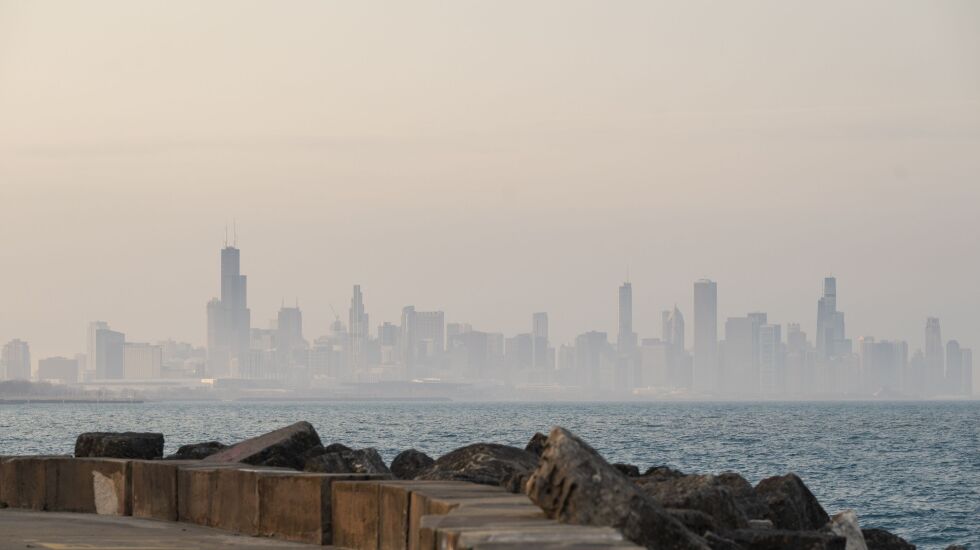
Chicago is suing the maker of polychlorinated biphenyls, or PCBs, that were banned in the U.S. more than 40 years ago, saying that the city continues to bear the cost of cleaning up the harmful chemicals.
Mayor Brandon Johnson’s administration brought the lawsuit in Cook County Circuit Court on Tuesday against chemical maker Monsanto and its successor companies and a distributor, Univar Solutions of Downers Grove.
The oily chemicals were used in electrical equipment and for other industrial applications. Despite being banned in 1979, products containing PCBs made before that time continue to discharge the chemicals into Lake Michigan through rainwater, the lawsuit said.
The chemicals are linked to a number of potential health threats, including cancer. Pregnant women have long been warned not to eat fish contaminated with the chemicals and studies have warned of neurological damage to infants and children.
“The accumulation of PCBs in natural resources, and fish in particular, poses a public health threat to Chicago residents,” the suit claims.
The lawsuit alleges that there is “widespread contamination” across the city, especially in the banks and sediment of the Chicago River. The city is required to clean up the chemicals.
The company, now owned by Bayer, said in a statement that the city’s case is “meritless.” The products were made by other companies, the chemicals weren’t produced in Chicago and the city is responsible for storm water sewer discharges, the statement said.
“The company has strong defenses and will vigorously defend against these claims,” it added.
Monsanto made the chemicals for four decades. Chicago is following the lead of other cities and states that have sued to collect damages, alleging that Monsanto knew of the dangers of the chemicals long before they were officially banned.
“Records show that Monsanto intentionally misled the public despite knowing the dangers PCBs posed to the environment,” Chicago Corporation Counsel Mary Richardson-Lowry said in a statement. “We bring this lawsuit to ensure that polluters are held accountable for their actions.”
Last year, Illinois Attorney General Kwame Raoul filed a similar suit against Monsanto for statewide contamination and negligence. A small town near East St. Louis was a major manufacturer of the chemicals for many years. That case is now in federal court.
The city also alleges that Univar distributed PCB products and “knew or should have known about the harm they would cause.”
Univar representatives didn’t respond to requests for comment.
The Monsanto corporate history is complicated and so multiple companies are named in the lawsuit. The German company Bayer bought Monsanto in 2018. Prior to that, Monsanto spun off its chemicals business, which is now owned by Eastman Chemical. Monsanto’s former drug business is now owned by pharmaceutical giant Pfizer.
In the past year, Bayer agreed to settle PCB-related lawsuits against Monsanto, including those brought by Pennsylvania and Oregon. A number of other cities and states have brought similar suits against the companies.







